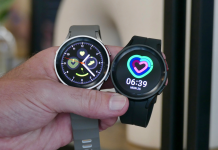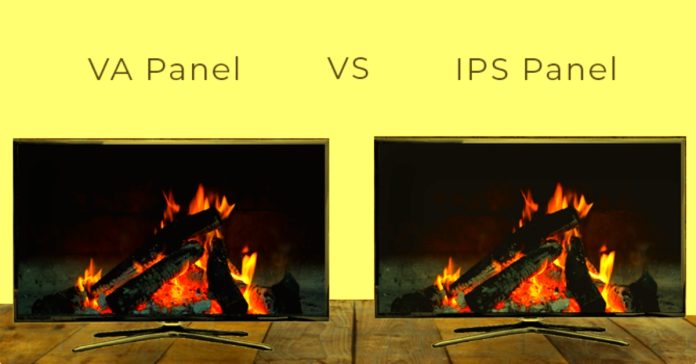Varied television technologies have different effects on picture quality. Each of the competing LCD panel types has pros and limitations, and choosing one over the other depends on how you plan to use the TV. The primary distinctions between the two most common LCD panel types, IPS and VA, and how they affect picture quality are discusse in this article.
VA vs. IPS: What’s the Difference?
LCD (Liquid Crystal Display) panels with LED backlights are use in many TVs. In-Plane Switching (IPS) and Vertical Alignment (VA) are the two most common varieties of LCD panels, and there are two major distinctions between them. The contrast ratio of a VA panel is normally high, and the viewing angles are restrict. An IPS panel, on the other hand, has low contrast and wide viewing angles. These are the key distinctions, while panel type has little impact on other aspects of picture quality, such as peak brightness, colour gamut, or colour accuracy.
Angle of View
The viewing angle is the angle at which you can watch TV without noticeably lowering the visual quality. IPS TVs win hands down because the image remains true when seen from the side – the differences can be seen in the movies above. This is the biggest benefit they have over VA panels. When seen from the side, most VA panel TVs suffer a considerable reduction in image accuracy. When used as a PC monitor from up close, the narrow viewing angle of VA-type TVs is also a problem because the corners of the display appear washed out.
Contrast
When it comes to picture quality, contrast ratio is one of the most essential variables. It determines how well a television displays blacks, with a high contrast setting displaying deep blacks when seen in low light. If your TV has a low contrast ratio, however, blacks will seem grey when seen in the dark. When it comes to this, VA panels outperform IPS panels, so if you want to watch movies in the dark, you’ll want to acquire a TV with a VA screen. Because of this fundamental benefit, most TVs employ VA panels, and high-end versions may have a local dimming technology that improves black levels even more. environments. IPS panels, on the other hand, typically have low contrast, making blacks appear grey, but you might not notice the difference in contrast in bright situations.
Differences in Technology
Liquid crystals are arranged in small groups to produce pixels in LCDs. When charged with electricity, these crystals react and shift position, allowing a specific colour of light to flow through depending on their location. The crystals in IPS displays are always horizontally oriented. They spin to allow light through when charged. The crystals in VA displays are vertically oriented. They migrate to a horizontal posture when charged, allowing light to pass through. When no current is passe through them, however, their vertical orientation effectively blocks light, resulting in improve blacks and contrast.
There’s also a form of IPS panel known as Plane-to-Line Switching (PLS), which the Sony X800H uses. Samsung created this panel type, which functions similarly to an IPS panel in terms of technology. When comparing the pixels, IPS panels appear to be chevrons, VA panels appear to be very straight rectangles, and PLS panels appear to be round-edged capsules.
Conclusion
Neither IPS nor VA panels are necessarily superior to one another since they serve different objectives. In general, IPS TVs feature wide viewing angles, making them ideal for watching the big game or your favourite show with a large group of people. They’re also good for use as a computer monitor because the edges stay accurate even if you sit up close. VA panels, on the other hand, are excellent for watching content in dark settings because of their improved contrast which allows them to exhibit deep blacks. Choosing between the two involves a series of trade-offs and qualities, so the optimal TV for your needs will be determined by how you use it.
Img Credit: electronicshub.org
REFERENCES:
- https://en.wikipedia.org/wiki/IPS_panel
- https://www.researchgate.net/publication/3453822_In-Plane_Switching_Technology_for_Liquid_Crystal_Display_Television








